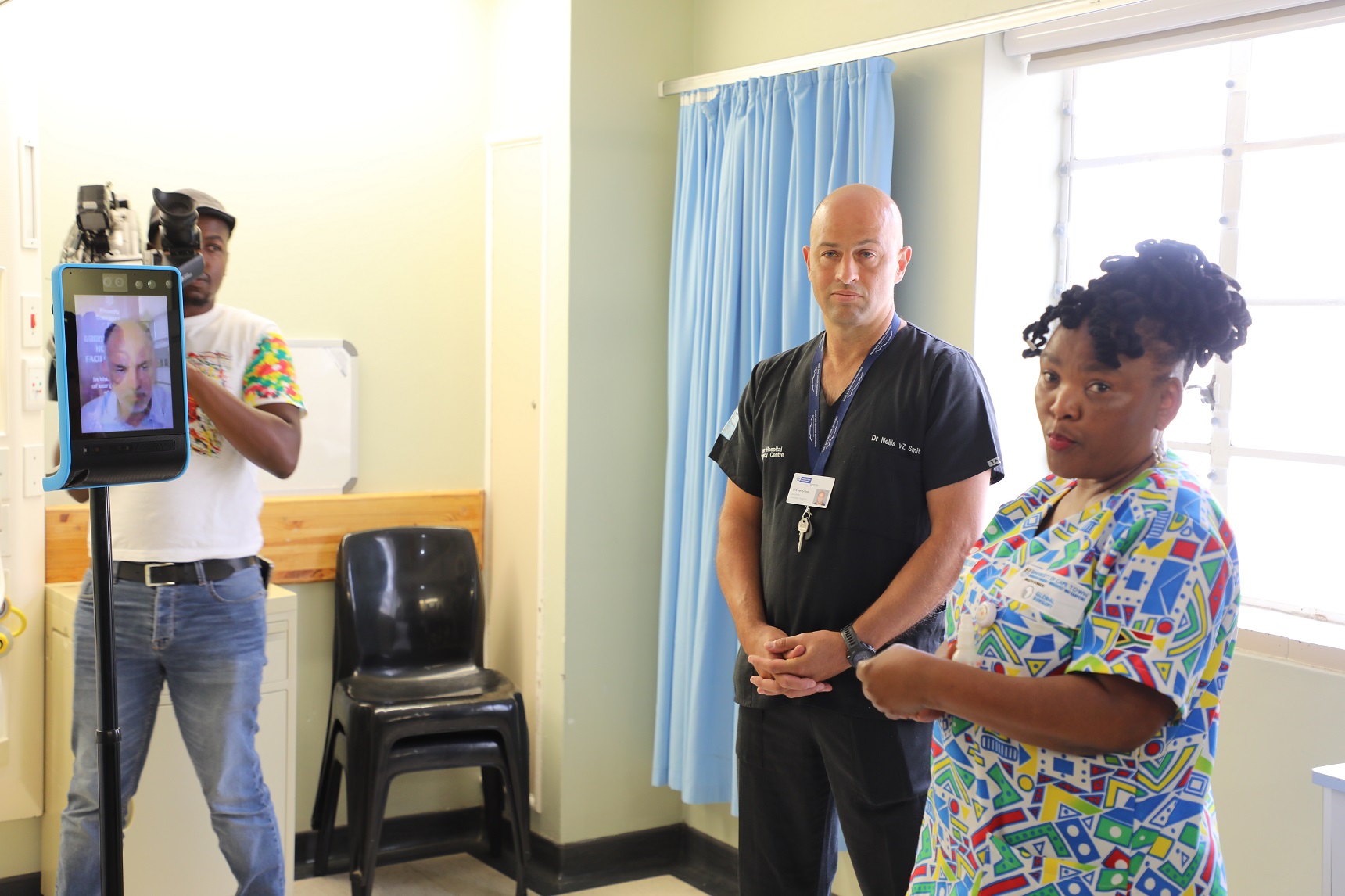
News
TeleICU pilot project is foundation for further innovation in health technology
TeleICU pilot project lays the foundation for further innovation in digital health technology
On Monday, 18 December, Western Cape Minister of Health and Wellness, Dr Nomafrench Mbombo, inspected the TeleICU pilot project which is being facilitated between George Regional and Groote Schuur Hospitals for their critical care services.
Traditionally, critical care outside the metro can be limited and often very expensive, owing to the current referral systems where further specialised services are located in tertiary health care facilities.
In the case of George Regional, it is the only facility which is capacitated with an Intensive Care Unit (ICU) in the region. This means it caters for a large population yet still must rely either on specialists travelling to George or transferring critically ill patients to Cape Town for these life-saving consultations to take place. For example, when patients are sent to Cape Town, it mostly requires the use of our Air Mercy Services to send an airplane from the metropole to George and comes at the cost of approximately R200 000.
Building on from the initial telehealth experiences used during the Covid-19 pandemic, George Regional made the decision to innovate and purchase this digital health technology to ensure the best possible care for patients.
The pilot is now connecting clinicians in the facility’s respective ICUs via a Double Robotic device (called “Georgie”) and is allowing for real-time critical care expertise access, improved decision-making, and knowledge transfer with overall improved patient outcomes. With the device also requiring no subscriptions or additional IT infrastructure, the cost of this initiative has shown to very effective thus far.
This means that a specialist from Groote Schuur is now routinely assisting critical care services in George Regional via the Double Robotic device and allowing scarce resources to be allocated elsewhere.
As this pilot evolves, it will consider the impact it has on reducing rates of patient readmission and mortality, average length of stay, rate of transfers while also increasing staff and patient satisfaction.
Joining virtually through the robotic device, Dr Ivan Joubert, who is the Head of Division of Critical Care Medicine at Groote Schuur Hospital, said, “Telemedicine has proven to be an opportunity of not only improving patient care, but also in building team relationships across facilities. There are faceless names that you’ve spoken to often over the phone who are now as much a part of the critical care team as the staff here at home. Unique to our project is the fact that we’re using this as a peer-to-peer intervention, rather than a healthcare provider to patient approach traditionally used in telemedicine processes.”
Speaking at the event, Minister Nomafrench Mbombo added that, “This project is proving that specialists no longer must be by the bedside in order to render life-saving services. Now, we are able to provide the same consultation without having to bear the costs of transfers or travelling. Even though this device is currently focused on critical care services, it possesses the immense potential of being expanded to other disciplines. Innovations such as these in the telemedicine area could make our healthcare services not only more accessible, but importantly more equitable. Due to the current constrained fiscal environment it is more important than ever to find new ways to improve the quality of healthcare while also cutting on costs. I look forward to seeing how this pilot project brings the best possible care to patients in the Garden Route.”


